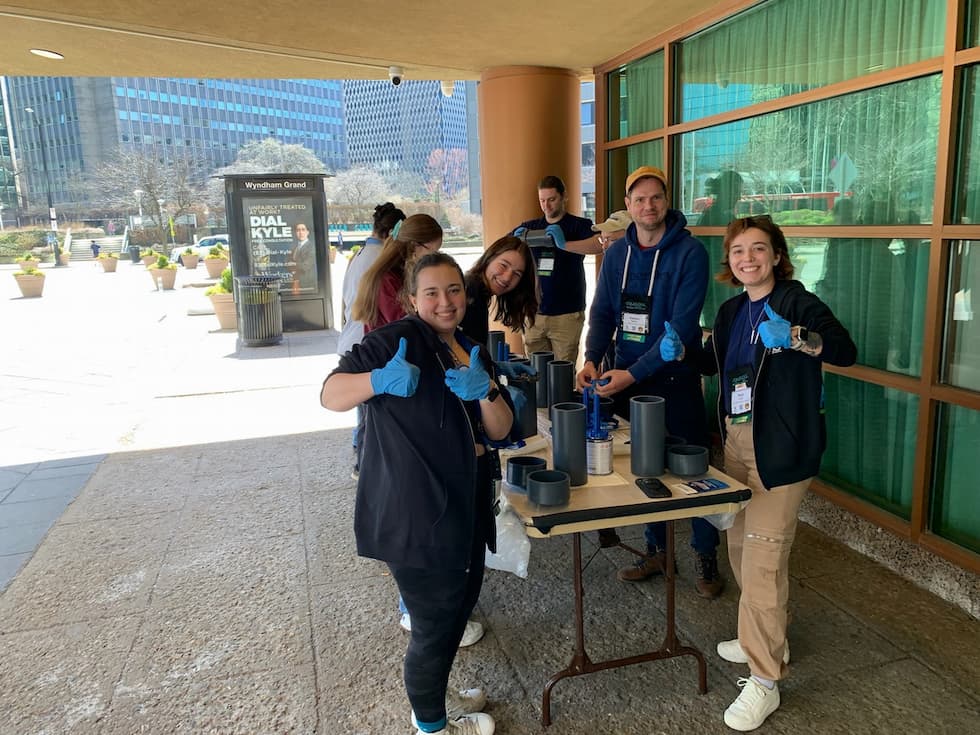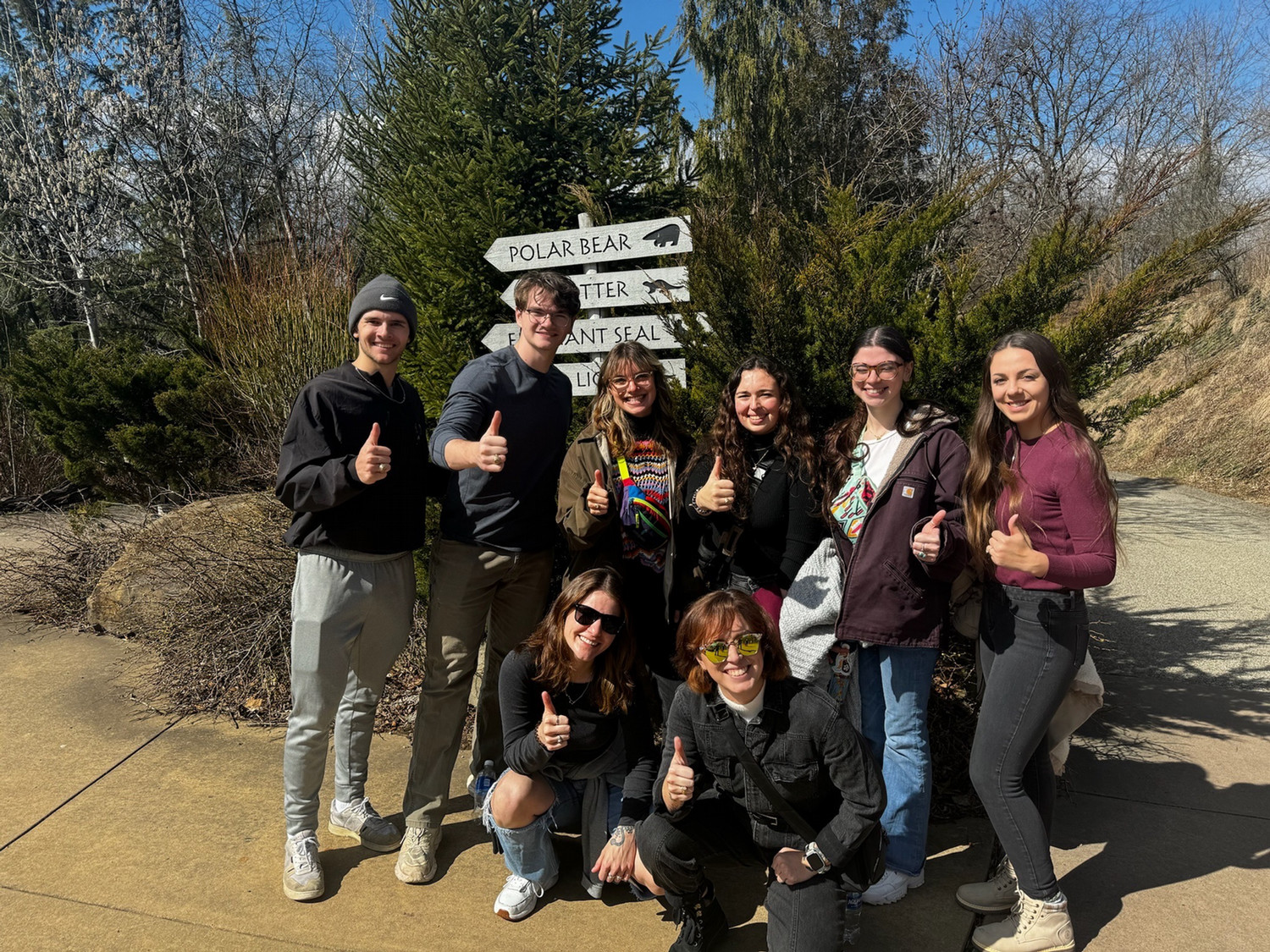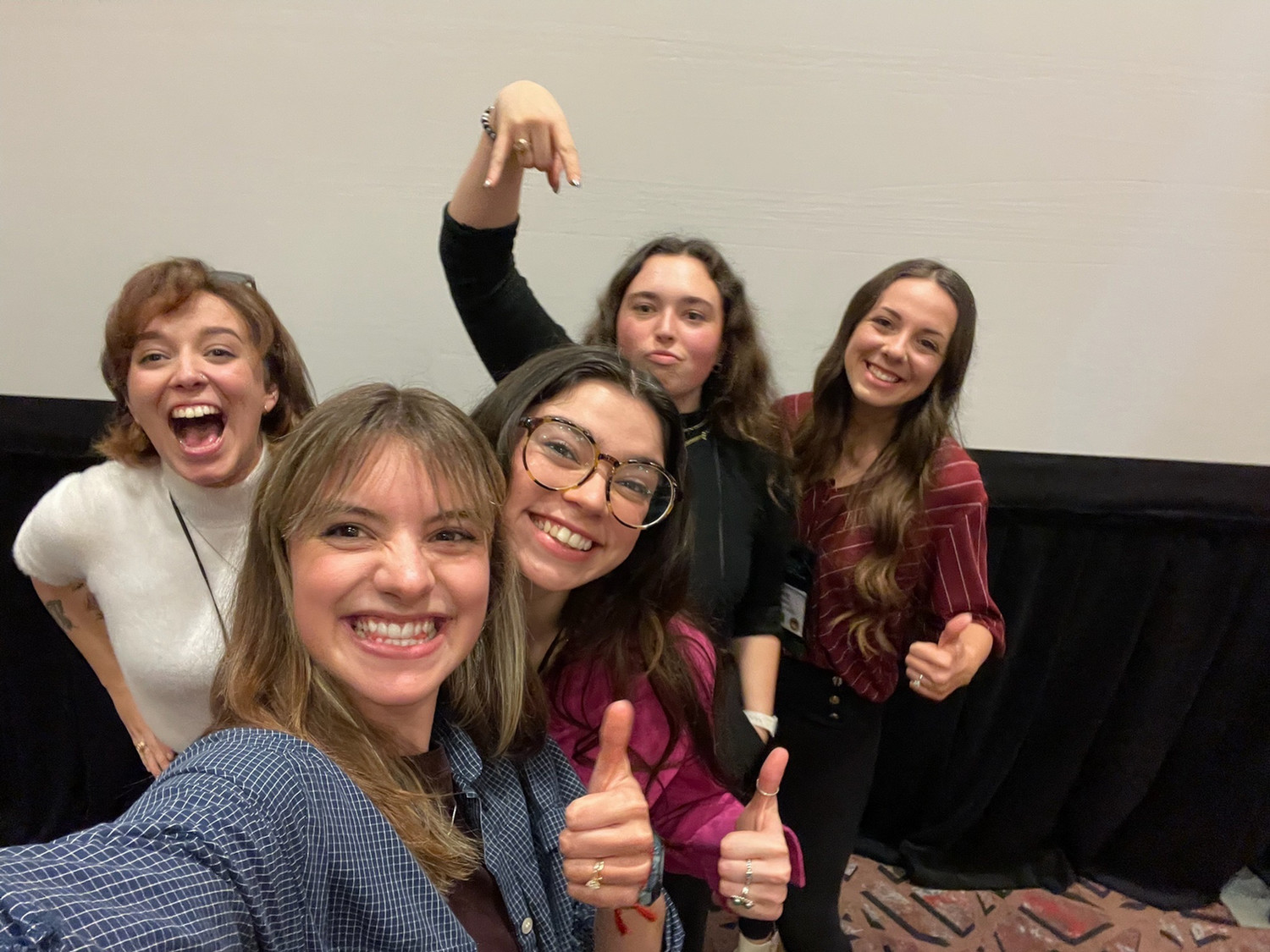Student's Experience At Aquatic Animal Life Support Operators Symposium
Tweet
By Lucie Hartman, Division of Marketing and Communications
Student and Sea Life Facility Employee Lucie Hartman '24 tells bldg. 311 about her trip to Pittsburgh for the 2024 Aquatic Animal Life Support Operators Symposium.
In March, I traveled from Texas A&M University at Galveston with seven other students to attend the 2024 Aquatic Animal Life Support Operators Symposium (AALSO) in Pittsburgh, Pennsylvania. Katie St. Clair, the Sea Life Facility manager and our supervisor, was our sponsor. The symposium gave us the opportunity to take workshops, sit for certification exams and network with industry professionals in a new (and nationwide!) environment.
The symposium was three days long, and showcased vendors, lecturers and workshops, where we saw new methods for using and trouble-shooting life support equipment. Attending these workshops was such a great learning experience.
This year, the Pittsburgh Zoo & Aquarium hosted the symposium, giving us the opportunity to tour their exhibits and pump rooms, and the recent progress they've made in their facilities. Other groups at the conference presented about their respective facilities as well, including new methods of life support and solutions to husbandry challenges, which we face in the Sea Life Facility here on campus.

A major portion of the symposium is the ability to sit for certification exams. Life Support Operator and Water Quality Technician certifications Levels 1-3 are offered at the symposium. These certifications show a proficiency in knowledge and problem-solving skills and can require up to ten years of experience to successfully achieve. Four students received their Life Support Operator Level 2 certifications (myself included) at the symposium and one student received her Water Quality Level 1.
As student staff of the Sea Life Facility, we spend our time learning and implementing animal care practices. We get facility experience while we're in school, which increases hireability after graduation. This practical experience while still in a learning environment is so helpful to our education, and the symposium helped acquaint myself with the industry, make connections and explore potential career paths.
Thank you to the generous donors that support our work and made this trip possible! The symposium was an epicenter of knowledge and experience intentionally designed to support facilities through collaboration and I'm so grateful for the opportunity to have gone.
###
More:
Read more about Health & Environment
Read more about Science & Technology
Read more about Marine Biology
Read more about Student Life
